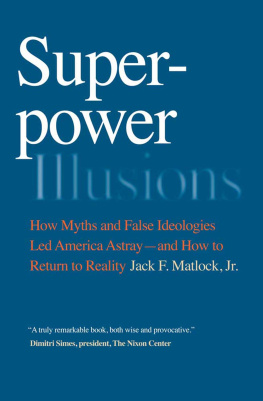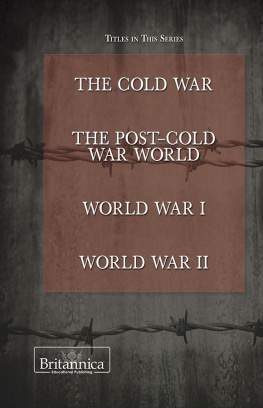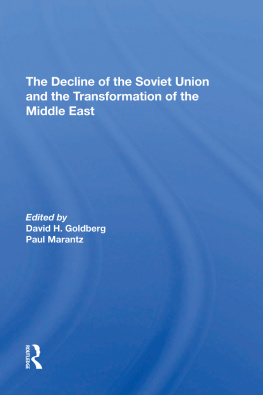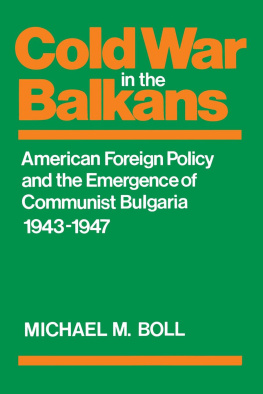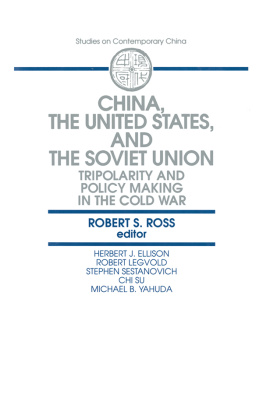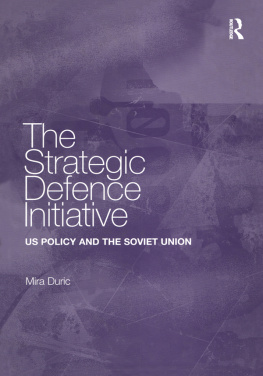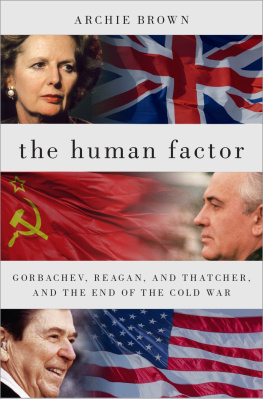Copyright 2010 by Yale University. All rights reserved. This book may not be reproduced, in whole or in part, including illustrations, in any form (beyond that copying permitted by Sections 107 and 108 of the U.S. Copyright Law and except by reviewers for the public press), without written permission from the publishers.
Set in Scala and Scala Sans types by
The Composing Room of Michigan, Inc.
Printed in the United States of America.
Library of Congress Cataloging-in-Publication Data
Matlock, Jack F.
Superpower illusions : how myths and false ideologies led America astrayand how to return to reality / Jack F. Matlock
p. cm.
Includes bibliographical references and index.
ISBN 978-0-300-13761-3 (alk. paper)
1. United StatesForeign relations19892. United States Foreign relations1980-1989. 3. United StatesForeign relations Philosophy. 4. United StatesMilitary policy. 5. United States Foreign relationsSoviet Union. 6. Soviet UnionForeign relationsUnited States. 7. Cold WarInfluence. 8. Unilateral acts (International law) 9. Intervention (International law) 10. International cooperation. I. Title.
E895.M38 2009
327.73009048dc22 2009027152
A catalogue record for this book is available from the British Library.
This paper meets the requirements of ANSI/NISO Z 39.48-1992
(Permanence of Paper).
10 9 8 7 6 5 4 3 2 1
PREFACE
HOW IS IT THAT WE HAVE MOVED, IN less than two decades, from the confidence that enveloped America when the Cold War ended, the Berlin Wall came down, and President George H. W. Bush proclaimed a new world order, to the division and widespread fear prevalent today? The world faces a deepening recession; American armed forces are fighting two wars that have lasted longer than World War II; the United States has become the worlds largest debtor, with a fraying infrastructure and educational system and an economy dangerously dependent on imports of energy from some of the most unstable parts of the world.
By 2008, dissatisfaction with the Bush-Cheney administration had reached such intensity among American voters that the candidates of both major political parties ran on platforms of change. Barack Obamas election has altered for the better much of the worlds perception of the United States. Nevertheless, admiration for the United States could be short lived if the Obama administration fails to reorient both domestic and foreign policy. In 2009, as I write these words, Americas problems, both at home and abroad, are so profound that successful change is far from assured. There is a danger that the justified pride in the nations choice of its first African-American president will lead its people and the world to underestimate the forces standing in the way of the policy reorientation our crisis requires.
There are many reasons for the predicament we find ourselves in, but one of the most fundamental is our failure as a nation to understand the lessons the Cold War and the collapse of the Soviet Union should have taught us. To judge from the superficialitysometimes even irrelevance of much of our political debate on foreign policy issues, neither the Democratic nor Republican party leadership has a clear idea of what we should have learned from the Cold War and the way it ended, the reasons the Communist Party lost control of the Soviet Union, and why that empire suddenly shattered into fifteen independent countries.
These events rearranged the political map of the world, but too many American politicians looked at the end of the Cold War as if it were a quasimilitary victory rather than a negotiated outcome that benefited both sides. They seemed to think that the disappearance of the Soviet Union left the United States as the sole remaining superpower, able to police the world if necessary without international sanction or the help of allies. Armchair strategists with illusions of power never seemed to understand that the disappearance of the Soviet Union decreased American leverage over other countries, which no longer needed U.S. support to fend off the communist threat. Many pundits inflated the importance of potential enemies to justify maintaining American military forces at a level far higher than needed for the nations defense.
And many were misled by the term Cold War. It was not a war in the normal sense of armed hostilities between nations. If it had been, we would very likely not be here today to think about it. Cold War is a metaphor, akin to the wars on drugs, poverty, and terrorism. A metaphorical war cannot be won by the same methods as a real one. When we act as if it can, we make a dangerous mistake. Misunderstanding the nature of the Cold War treating it as if it ended with the military victory of one country over another, rather than a negotiated conclusion that benefited all countriesinduced a false sense of security, a giddy triumphalism that blinded us to the growing threat of terrorism and led American leaders to involve the nations armed forces, for humanitarian reasons, in a growing number of local and regional conflicts.
Intervening to protect human rights was done with the best intentions, but it has too often led where roads paved with good intentions usually lead. The end of the Cold War gave the United States the opportunity to help build a new international system, just as American leadership after World War II created alliances in Europe and the Far East that avoided the mistakes that followed World War I. This system of alliances survived the tensions of the Cold War, while the parallel system organized by the USSR, based on force and compulsion, collapsed. The new world order proclaimed by George H. W. Bush in 1991, in which aggression by one country against another would be deterred or reversed by collective action, seemed close at hand.
With no further need to worry that local insurgencies might be exploited by an expansionist Soviet Union, the United States had the opportunity to trim back security commitments to far-flung areas of the world. The door was open to share more of the responsibility for peacekeeping with regional powersincluding those from both sides of the Cold War divideas their economic and military capacity grew. America had the opportunity to cooperate with Russia and other nuclear powers to continue on the path Ronald Reagan, Mikhail Gorbachev, and George H. W. Bush had set, to reduce reliance on nuclear weapons and resist further proliferation.
But instead of working to create an international order that would address the issues most important to its own securityan order in which power and responsibility would be shared, local conflicts contained, and weapons of mass destruction brought under reliable controlthe United States allowed itself to be distracted. It involved its military forces in struggles hardly relevant to American well-being, and did so in a way that engendered the hostility of countries whose cooperation was in the long run essential to American security. The Clinton administrations decision to expand NATO to the east rather than draw Russia into a cooperative arrangement to ensure European security undermined the prospects of democracy in Russia, made it more difficult to keep peace in the Balkans, and slowed the process of nuclear disarmament started by Presidents Reagan and Gorbachev.
In campaigning for the presidency in 2000, George W. Bush promised a humble foreign policy that would eschew the sort of nation-building President Clinton had attempted. But when hijacked aircraft destroyed the World Trade Center in New York, damaged a significant portion of the Pentagon, and killed nearly three thousand people, he announced that the world has changed, and his policies became even more assertive, unilateral, and ambitious than Clintons had been. After using military action against Al-Qaeda in Afghanistan and the Taliban regime that had harbored itactions approved by the United Nations and supported by the NATO alliancehe ordered an attack on Iraq without either United Nations sanction or the support of some key allies.

